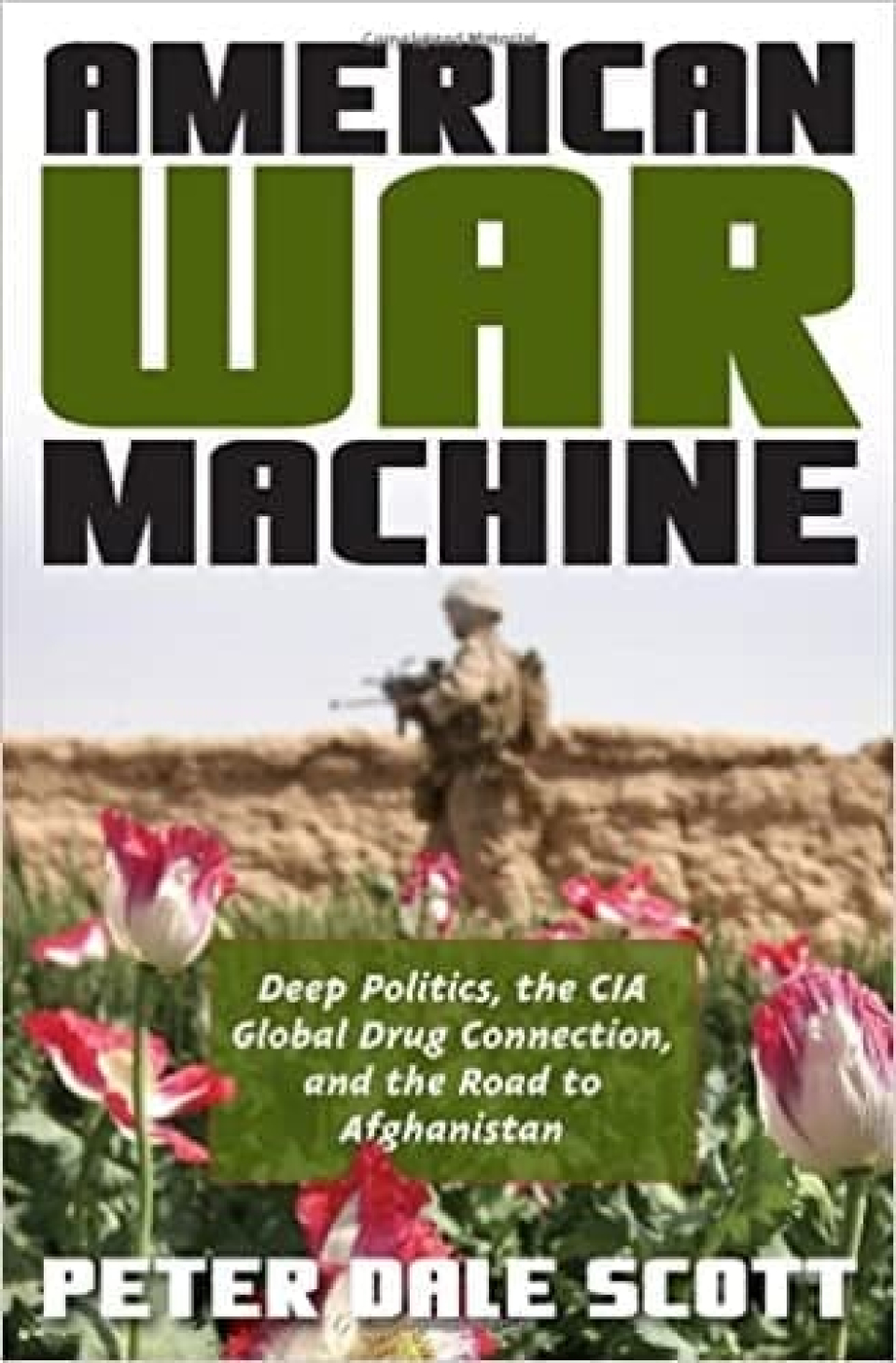By Peter Dale Scott , amazon link
Peter Dale Scott (born 11 January 1929) is a Canadian-born poet, academic, and former diplomat. He is best known for his critiques of deep politics and American foreign policy since the era of the Vietnam War. Although trained as a political scientist, Scott holds an atypical academic appointment as a poet-scholar in an English department. After receiving undergraduate degrees in philosophy (first-class honours) and political science (second-class honours) from McGill University in 1949, he studied at the Institut d'Etudes Politiques (France, 1949) and University College, Oxford (1950-1952) before receiving a Ph.D. in political science from McGill (with a dissertation on the social and political philosophy of T.S. Eliot) in 1955. Notably, he was a signatory in 1968 of the "Writers and Editors War Tax Protest" pledge, in which participants vowed to refuse tax payments in protest against the Vietnam War.
In his book, American War Machine: Deep Politics, the CIA Global Drug Connection, and the Road to Afghanistan, he explores the covert aspects of U.S. foreign policy. Prominent political analyst Peter Dale Scott marshals compelling evidence to expose the extensive growth of sanctioned but illicit violence in politics and state affairs, especially when related to America's long-standing involvement with the global drug traffic. Beginning with Thailand in the 1950s, Americans have become inured to the CIA's alliances with drug traffickers (and their bankers) to install and sustain right-wing governments. The pattern has repeated itself in Laos, Vietnam, Italy, Mexico, Thailand, Nigeria, Venezuela, Colombia, Peru, Chile, Panama, Honduras, Turkey, Pakistan, and now Afghanistan—to name only those countries dealt with in this book. Scott shows that the relationship of U.S. intelligence operators and agencies to the global drug traffic, and to other international criminal networks, deserves greater attention in the debate over the U.S. presence in Afghanistan. To date, America's government and policies have done more to foster than to curtail the drug trade. The so-called war on terror, and in particular the war in Afghanistan, constitutes only the latest chapter in this disturbing story.

















